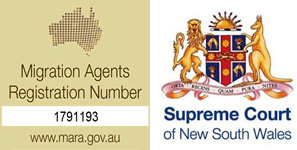What is Schedule 3? Best Guide for Schedule 3 Immigration & Visas
Schedule 3 Visa Rules Explained: Avoid Refusal for Australian Visas
Stuck in Australia without a valid visa and applying for a partner visa? Schedule 3 could be your biggest hurdle – and we know how to fix it.
What is Schedule 3?
Schedule 3 generally prevents people from applying for certain visas onshore (while already in Australia) if they don’t currently hold a “substantive” visa (like a tourist, student, or work visa) and haven’t held one recently. Essentially, it aims to stop people from overstaying one visa and then quickly applying for another while still in the country.
When Does Schedule 3 Apply? (The Visas Affected)
Schedule 3 criteria become critically important for Onshore Partner Visas (Subclass 820 and 801), visitor visas, and many other visa types. Schedule 3 may apply to you if either of these situations applies to you:
- You are on a Bridging Visa (A, B, C, or E): This often happens if your previous substantive visa expired while you were waiting for a decision on another application.
- You are an Unlawful Non-Citizen: This means your last substantive visa has expired, you haven’t applied for another visa that grants you a bridging visa, and you are in Australia illegally.
If you find yourself in either situation and want to apply for an 820/801 Partner Visa or other visas while remaining in Australia, you MAY have to satisfy the Schedule 3 criteria.
Schedule 3 (specifically criteria 3001, 3003, and 3004) is about:
- Criterion 3001: You must have applied for your Partner Visa within 28 days after your last substantive visa expired. This is very strict.
- Criterion 3004 (The Most Common): If you didn’t apply within that 28-day window (or your situation fits other parts of the rules), you face Criterion 3004. To satisfy 3004, you must prove “compelling reasons” for not holding a substantive visa when you applied for the partner visa AND prove there are “compelling and compassionate circumstances” that justify the Minister granting the visa.
For Partner Visas, there is a lower threshold. Contact US to learn more!!!
What are “Compelling and Compassionate Circumstances”?
This is the heart of overcoming Schedule 3. The Department of Home Affairs (and tribunals like the AAT) look at your entire situation.
Common arguments accepted for Schedule include:
- Australian Citizen Children: Having children in Australia who are Australian citizens, especially if they are young, have health issues, or their best interests would be severely harmed by your separation or departure to be away from them.
- Long-Term, Genuine Relationship: Demonstrating a lengthy, committed, and genuine relationship with your Australian partner before you became unlawful or held only a bridging visa. The hardship caused by forcing you to leave to apply offshore is key. [Note this is not a strong factor, though, as policy states it is normally expected for partners to experience hardship being away]
- Health Issues (Yours or Your Partner’s): Serious physical or mental health conditions affecting you, your partner, or dependent family members in Australia, making travel or separation extremely difficult or harmful.
We have vast experience in Schedule 3 submissions, where we have successfully helped people gain their partner visa and permanent residency.
Schedule 3 is a complex specimen that requires thorough analysis, case law and persuasion to convince Immigration (Department of Home Affairs).
If you need help for Schedule 3, contact us on info@visaeducationexperts.com.au or +61 414 588 942.
Information provided in this website is general in nature and does not constitute immigration advice.
The information on this website can change without notice and we do not guarantee the accuracy of information.
Every effort has been made to ensure that the information provided is accurate. Individuals must not rely on the information in this website to make a visa or immigration decision. Before making any decision, we recommend you consult a migration agent or lawyer to take into account your particular situation and individual needs.
Please note that any immigration advice provided only and only constitutes immigration assistance as per s276 of the Migration Act 1958 (It does not include or constitute any other type of advice apart from immigration assistance as per s276 of the Migration Act 1958).


